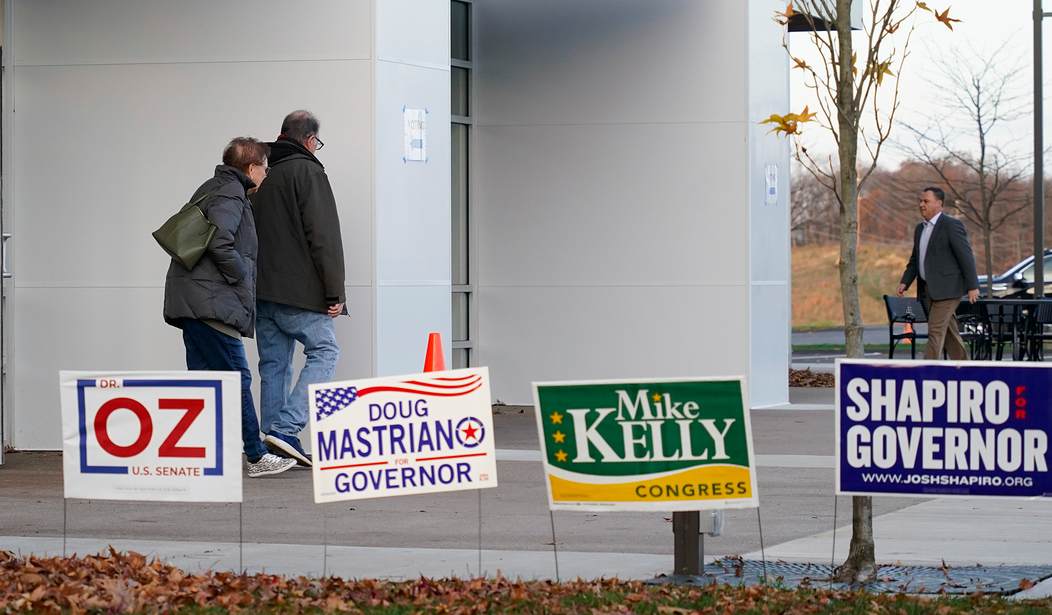Candidate quality is seen by many on the right as one of the prime contributors to the GOP’s disappointing showing during the midterm elections. Indeed, it is still a topic of conversation, as Herschel Walker and Sen. Raphael Warnock are headed to a runoff to determine which man will represent the state of Georgia.
But there is another element in this equation: The Democrats’ strategy of pouring money into the campaign coffers of certain Republican candidates during the primary season. The party raised a few eyebrows when it was reported that it was funding the campaigns of congressional hopefuls that might be seen as too extreme by voters. Democrats were gambling on the notion that these individuals would be easier to defeat in the general elections.
As much as I hate to admit it, they were right.
Apparently, I’m not the only right-leaning person who believes this. In fact, a Washington Times report suggests that the GOP is considering emulating this tactic in the next election cycle:
Republicans are eyeing retaliation against Democrats after watching as President Biden’s party meddled in GOP primaries this year, picking pro-Trump candidates who proved to be easier to defeat in the general election.
Analysts say Democrats’ investment in GOP races from New Hampshire to Michigan left Republicans with fewer good opportunities to hold or pick up seats.
Republicans this week called Democrats’ tactics unethical but effective.
Rep. Austin Scott (R-GA) told the news outlet that he believes neither party should engage in these tactics. However, if this is the game that is being played, he suggested the Republicans learn how to play.
“If they’re going to engage in ours, we will be forced to engage in theirs,” Scott said. “They won every seat that they did that in and, so now you’re talking about the difference in a 10-seat majority vs. a three-seat majority. We can’t allow them to do what they did in our primaries and not combat that.”
Other Republicans are not so keen on the idea.
“It may have worked this time around, but it just doesn’t feel right,” said Rep. Paul Gosar (R-AZ) “America is based on excellence of trying to be the best and competition to drive that excellence. That’s quite the opposite. It’s not driving excellence. It’s trying to drive a negative or what you perceive as a negative.”
It is not easy to determine precisely how much of an impact the Democrats’ gambit had on the outcome. But it is difficult to deny that it did have at least a modicum of influence:
In the Michigan House race, Democrats boosted John Gibbs, a Trump endorsee who would go on to defeat Rep. Peter Meijer in the GOP primary. With Mr. Mejier in the race, prognosticators rated it anywhere from a toss-up to favoring the GOP. After Mr. Gibbs’ victory, they rated the race as leaning toward Democrat Hillary Scholten, who would go on to win 55% to 42% over Mr. Gibbs.
In New Hampshire, Don Bolduc would emerge and polling seemed to suggest he had a chance at knocking out incumbent Democratic Sen. Maggie Hassan. He ended up losing by 9 percentage points.
Even some Democrats balked at the idea of funding more Trumpian candidates during the primary season.
“We helped anti-democratic candidates into positions of great influence and power, and now know the names and brands of pretty terrible election deniers and those who dabble in conspiracies,” a Democratic aide said. “It makes me rethink if I ever will donate to the Democratic Party again.”
Still, it is not clear whether the GOP will be willing to adopt this strategy in the next campaign season. But this is an indication that enough Republicans can be persuaded to fight fire with fire, so to speak, especially if Democrats decide to employ the tactic again.
It is understandable why some would be loath to imitate the Democrats in this regard. Indeed, placing the thumb on the scale to gain a political advantage is the type of proposition that might make one feel as if they need a shower after using it.
Nevertheless, if I were running the RNC, the prospect might be too tempting to pass up. In previous elections, we have seen how poorly far-left “progressive” candidates have fared. In some cases, they have managed to get elected to Congress. But in most, they fail. Indeed, most of these people aren’t even able to make it past the primary period, as voters tend to favor more moderate Democrats.
Given the fact that the majority of Americans are not on board with the brand of socialism championed by AOC and her ilk, it is not difficult to imagine how Republicans could win major gains by exploiting this reality. Now that Democrats have seen that this strategy is effective, it is doubtful that they will cease using it in the future. In this case, it might just be better to join them if we can’t beat them.













